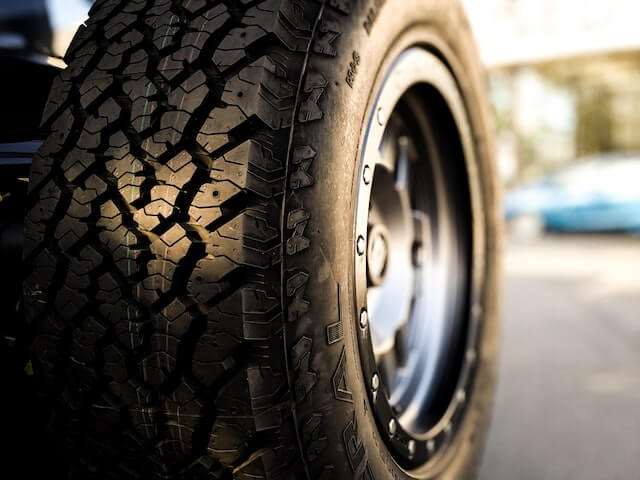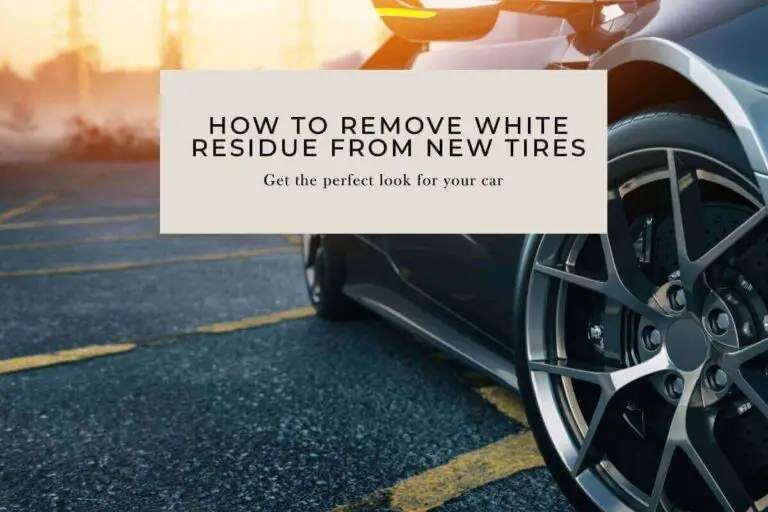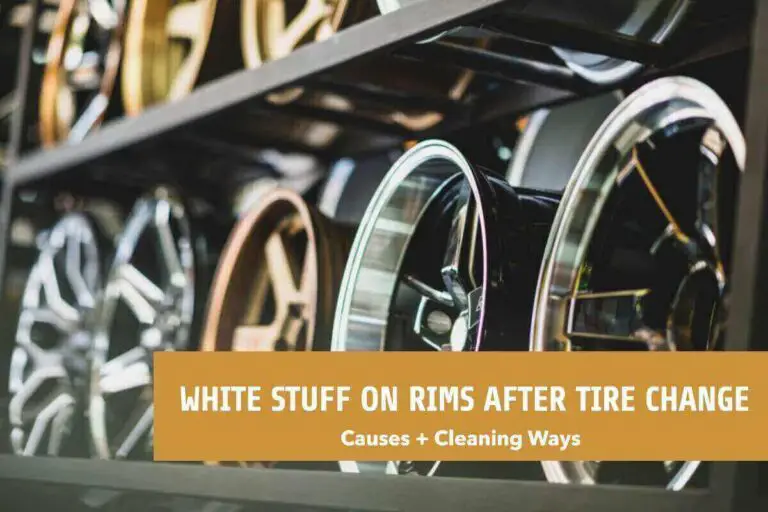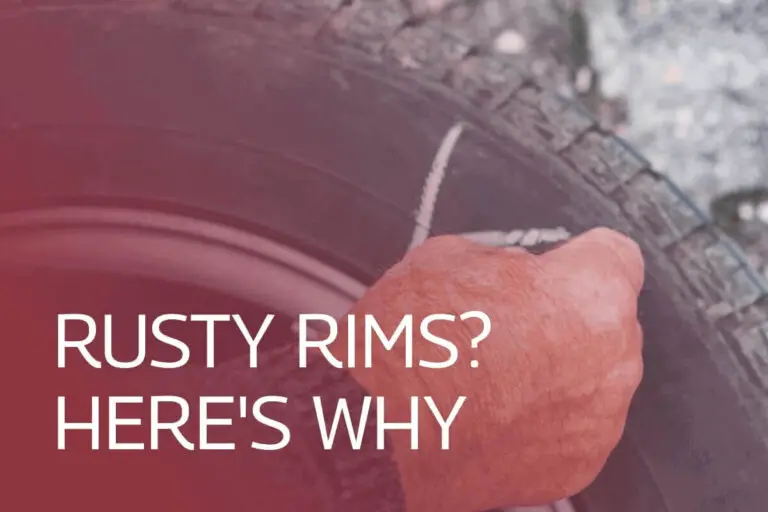Have you ever noticed your car tires turning orange and wondered why? You’re not alone – many drivers have experienced the same phenomenon. Seeing orange on your tires can be alarming, but it’s usually nothing to worry about.
In this article, we’ll discuss why are my tires turning orange and how to prevent it if you want to avoid it in the future.
Why Are My Tires Turning Orange
Many of us take our cars in for regular maintenance, but we may need to realize that the condition of our tires can also impact their color. If you’ve ever noticed that your tires have taken on an orange hue, you’re probably wondering what’s causing it.
As strange as it may sound, this is a common issue many car owners experience. Fortunately, there are many causes for orange tires which are given below:
Cause 1: Ozone Exposure
Ozone is a gas present in the atmosphere, and it can negatively impact the rubber in your tires. Over time, exposure to ozone can cause the rubber to break down and lose its elasticity, leading to discoloration and, eventually, cracks in the tire.
Cause 2: Chemical Degradation
Certain chemicals, such as solvents or gasoline, can also harm the rubber in your tires. These chemicals can cause the rubber to break down and lose its color, resulting in orange or brown discoloration.
Cause 3: UV Rays
The sun’s UV rays can also have a negative impact on the rubber in your tires. Over time, exposure to UV rays can cause the rubber to break down and lose color, resulting in orange or brown discoloration.
Cause 4: Brake Dust
When you apply your brakes, small particles of metal and friction material can be released into the air. These particles can settle on your tires and create a rust-like discoloration that can turn your tires orange.
Cause 5: Improper Cleaning
Using certain cleaners or cleaning tools, such as harsh chemicals or abrasive brushes, can cause the rubber in your tires to break down and lose color. It’s important to use only mild soap and water to clean your tires and avoid using harsh chemicals or abrasive tools.
The above causes are general and cover most cases of orange-tinted tires. You can keep your tires in good condition and extend their lifespan by being aware of why are my tires turning orange and taking precautions to avoid them.
Effects of orange tires
The effects of orange tires can be both aesthetic and potentially damaging to the tires. From an aesthetic perspective, orange tires can look unsightly and make your car appear dirty even if recently washed.
However, the potentially damaging effects of orange tires are more concerning. The accumulation of brake dust and road grime can create a layer of grime that can retain moisture and promote rust on metal parts of the wheel assembly. If left uncleaned for extended periods, the debris can also cause pitting or damage to the tire’s surface.
Suppose your tires turn orange due to exposure to certain chemicals or environmental factors. In that case, it could indicate that your tires are experiencing chemical damage or oxidation, which could lead to cracking, dry rot, and other serious tire problems. That is why it is essential to regularly clean your tires and inspect them for any signs of damage or wear to ensure safe driving.
Prevention Tips
Prevention of orange tires is the best method to maintain their appearance and performance. You can do many things to keep your tires looking like new and to ensure they are properly maintained. Here are some tips on how to prevent orange tires:
1. Tire cleaning
Preventing tire discoloration from brake dust and other impurities requires cleaning your tires. Avoid using strong chemicals or abrasive instruments that could harm the rubber when cleaning your tires; use mild soap and water.
2. Applying Sealant
A tire sealant can shield your tires from the weather and stop color fading from UV radiation, ozone exposure, and other environmental variables. Use a sealant intended exclusively for use on tires, and carefully adhere to the manufacturer’s directions.
3. Avoid Direct Sunlight
Over time, exposure to direct sunlight can cause your tires’ color to fade and become discolored. Use a tire cover or park your car in a shaded area whenever feasible to shield the sun’s damaging rays from your tires.
4. Frequent Inspection
It’s crucial to regularly check your tires for wear or damage to stop problems like cracking and discoloration from escalating. To keep your tires in good condition, check them frequently for signs of wear or damage and replace them as necessary.
5. Avoid Heat Exposure
Extreme heat and high temperatures can cause the rubber in your tires to break down and lose color. Avoid driving on hot pavement or leaving your car parked in direct sunlight for extended periods to prevent heat-related damage to your tires.
The above preventions will help ensure your tires remain in good condition and provide you with the best driving experience.
Conclusion
In conclusion, the accumulation of brake dust, dirt from the road, or exposure to specific chemicals or environmental variables are likely to blame for the orange hue on your tires.
Avoid using strong cleaning chemicals, wash your tires frequently with a light detergent and a soft brush or sponge, and park your car in a covered location or garage to reduce exposure to environmental variables. And think about applying tire coatings or protectants that can help repel dirt and grime.
To guarantee safe driving, it’s also critical to frequently check your tires for any indications of damage or wear and to replace them as necessary. I hope this article about Why are my tires turning orange helps, and if you have any questions, please leave your feedback in the comments section below.
FAQs:
How can brake dust contribute to the discoloration of tires?
Brake dust contains metallic particles that can stick to tires and create a layer of grime that can contribute to the discoloration of tires.
Can using specific cleaning agents or chemicals cause tires to turn orange?
Yes, harsh cleaning agents or chemicals can cause tires to turn orange by damaging the rubber and promoting oxidation and other chemical reactions.
What are the potential long-term effects of orange tires on the safety and performance of a vehicle?
The potential long-term effects of orange tires on the safety and performance of a vehicle can include corrosion, structural damage to the wheels, and cracking or dry rotting of the rubber, which can increase the risk of tire failure and other dangerous driving situations.
How can orange tires impact the overall appearance and value of a car?
Orange tires can negatively impact the overall appearance and value of a car and potentially reduce the vehicle’s safety and performance. Maintaining and cleaning your tires is essential to avoid these issues regularly.






